With the support of the City of Chuncheon, the initiatives of its mayor Yook Dong-han, and the support of the Korean Ministry of Culture, the 2022 General Assembly of AVIAMA (International Association of Puppet Friendly Cities) was held in the presence of representatives of UNIMA, the founders of AVIAMA, with the presence of representatives of Bialystok (Poland), Saguenay (Canada), Tournai (Belgium), Iida (Japan), France and its other members (Czech Republic, Taiwan, Spain, France, etc) by videoconference. The 10th anniversary of AVIAMA was celebrated on this occasion.
UNIMA Korea also invited its colleagues from all continents of the globe to have a dialogue on some of UN’s Sustainable Development Goals including Gender Equality, Sustainability, and Education. All these were held in conjunction with Chuncheon’s 34th Puppet Festival.
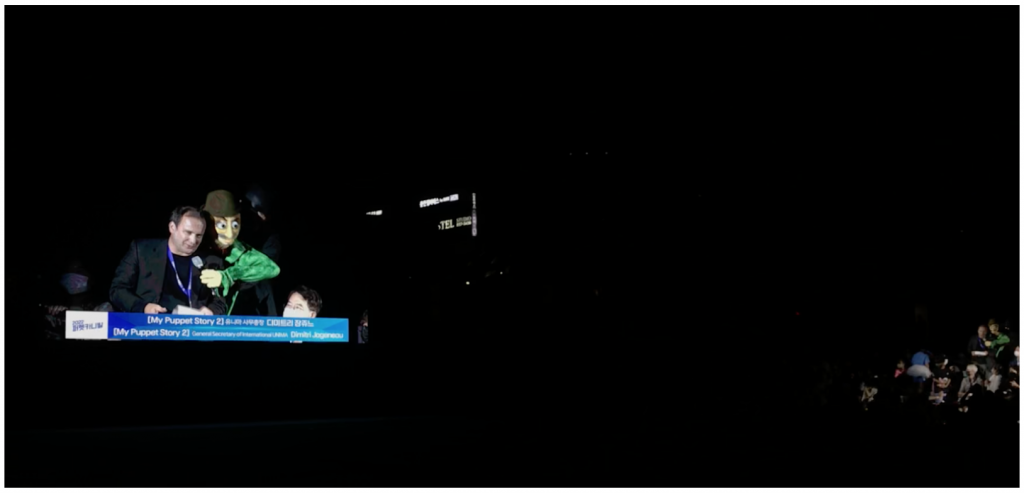
Chuncheon was an exceedingly gracious host as UNIMA and AVIAMA members visited various cultural and educational sites, and had a great outing at Nami Island where the famous Korean TV-soap, Winter Sonata (2002), was filmed. Other highlights include the Gim Yu-jeong village, dedicated to the novelist whose works survived the Japanese occupation, and the installation and visual display of 90 of the 500 arhats found at Changnyeong-sa Temple at Yeongwol, presented at the Chuncheon National Museum. They also had the honour of being some of the first to visit the Asian puppets exhibit at the Chuncheon Puppet Museum, which included the puppets of Korea, China, Japan, India, Cambodia, with a collection from Indonesia courtesy of one of the UNIMA delegates, Wahyu Dunung Raharjo. In conjunction was the AVIAMA General Assembly, which unanimously presented its International Puppet Arts Initiative Award to the Chernihiv Oblast of Ukraine and welcomed its newest member city, Palma de Mallorca of Spain.
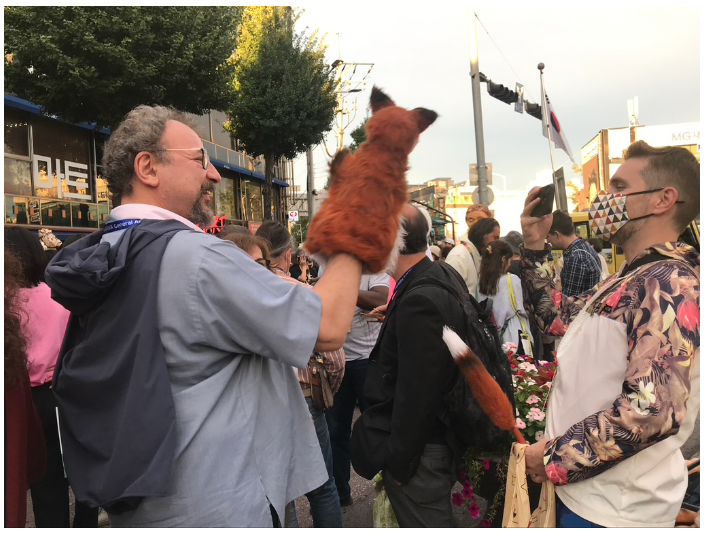
UNIMA and AVIAMA also participated in the opening ceremony of Chuncheon’s 34th Puppet Festival, which started with a puppet procession on the street and concluded at City Hall, where UNIMA General Secretary, Dimitri Jageneau, presented his experience and relationship with puppetry. In the coming days, UNIMA’s delegates attended some of its many shows which included folk stories, contemporary theatre, and street arts. Each evening included a night of engagement with UNIMA’s puppeteers who presented their shows in an ‘art market’ where they moved from table to table in quick succession with only 5 minutes to do so.
The two weeks of meetings and festivities were only slightly disrupted by the typhoon Hinnamnor which passed Korea and Japan on the final day on Sunday the 4th. The festival had to end a day earlier, but all delegates have made it back to their homes and theatres safely.
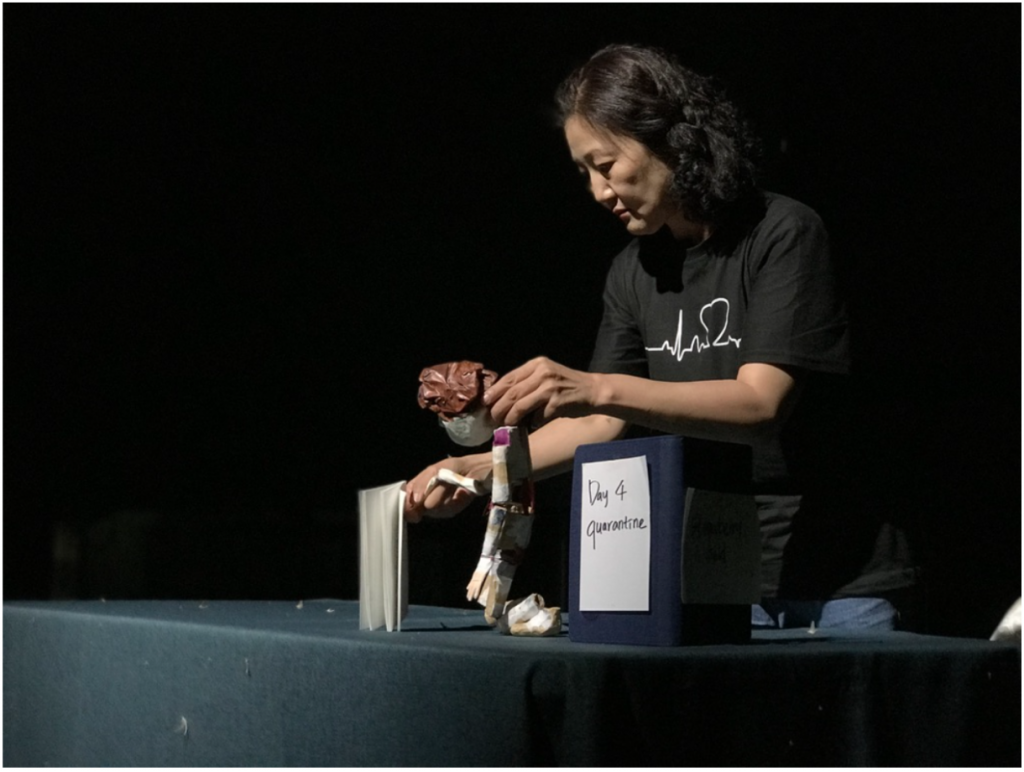
UN SDGs
A wide range of topics were discussed in the festival’s UNIMA symposium, including representation, the rights to education, and sustainability. The topics were curated by UNIMA Korea’s secretary Jenny Heo Kyoung-Jin and the panels moderated by Professor Choe Junho.
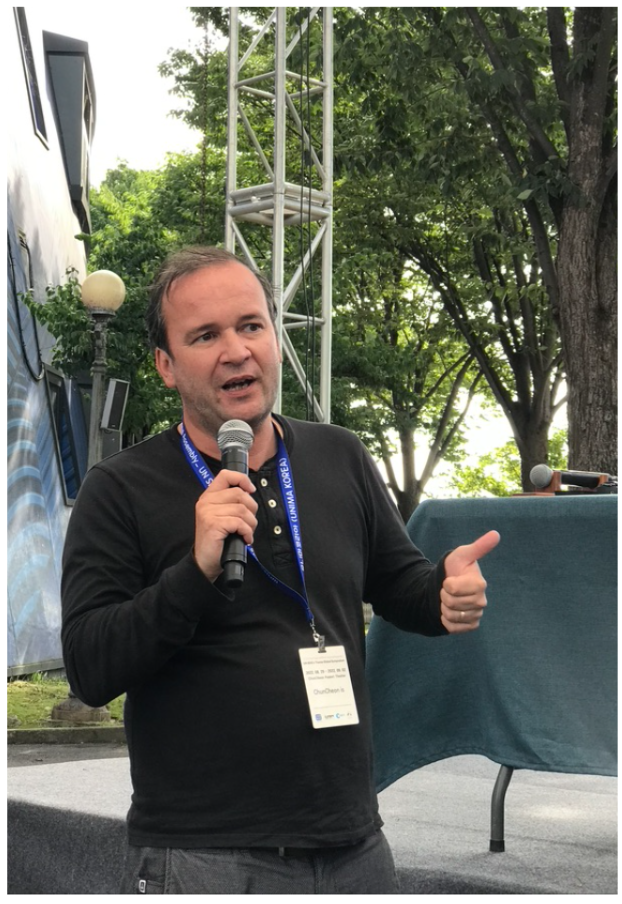
In the first two days, panellists Tito Lorefice and Dimitri Jageneau introduced us to the aims of puppetry training, while Irina Niculescu shared about some of the goals puppet training could have today. Panellists Matthew Isaac Cohen and Mihail Baykov added to the dialogue with their presentations of puppet education in societies and communities, while Hashishi Shimoyama reminded us of the greater need for children to attend cultural activities. Han Chi shared about her efforts to contemporarise the arts in Beijing and Phylemon Odhiambo also spoke candidly of the changes and challenges of developing puppetry in Kenya. Chad Williams wrapped up this first section with a brilliant presentation on the research study on the effectiveness of puppetry for children with special needs, as well as other notes he had on how to connect with children through puppets online. It was an amazing start as we heard the different ways puppet groups and theatres around the globe were adjusting to the COVID situation yet remained focused on their crafts and audiences.
On the third day Jodi Thiele, Nina Vogel, and Maria Laura Velez Valcarcel made very strong stands on tackling one of the most pertinent topics: sustaining the environment. They spoke candidly about the responsibilities of artists in this great human crisis, and asked that we look outside the box to do more. The activities of Mohamed Hermaidi Zourgui were also very inspiring as he shared about the various government agencies and partnerships that have helped create programmes in Algeria, including a music video with puppets for children. Yoon Sung Jin, Artistic Director of the Han River Festival, and Sun Wook Hyun, the art director of Chuncheon Puppet Theatre, also provided very strong case studies on how cultural activities could be more sustainable. They shared how they have raised the awareness of green practices over the past years, and in the case of Chuncheon’s puppet festival, this included recycled art activities and the reduction of print banners and signs – activities that were fun, creative, and less damaging to the environment at the same time.

The fourth and fifth days included presentations on the efforts of UNIMA to support puppeteers victimised by the Ukrainian crisis, that includes the coordination of Europe’s centres to provide resources and information, led by the Europe regional president, Clement Peretjako, and the Free of Strings crowdfunder by the Cooperation Commission, presented by its member Terence Tan. Within the theme of peace and justice, Song Jungmin shared about the perpetuation of racism in puppetry, presenting examples from an exhibit she curated in the US, while Terence continued with his presentation on his purpose of helping through arts education. On the fifth day, Irish UNIMA president Goran Zelic, who was himself a survivor of the Croatian war, presented his and his centre’s efforts to help Ukrainian puppeteers while Claudia Ramantea, also of Irish UNIMA, shared about her scenographic works and her inspirations, including the disharmonies she sees.
Acknowledging there was much more to do for gender equality was the final note of the five-day symposium, as panellists Nina and Maria Laura presented the longstanding histories of gender prejudice in their countries, while Yasminka Misaric and Janni Younge presented the rise of female directors in their countries. They demonstrated the influence of female artists, too many to share in this report, who continue to make a mark in the art scenes of their societies. Between the floor and its panellists, there was some consensus that there have been improvements for opportunities in UNIMA, but it remained important that the international association has to lead the way for greater social change. Moderator Choe then reminded all participants that these outcomes were important to share with the Board members of UNIMA Korea.
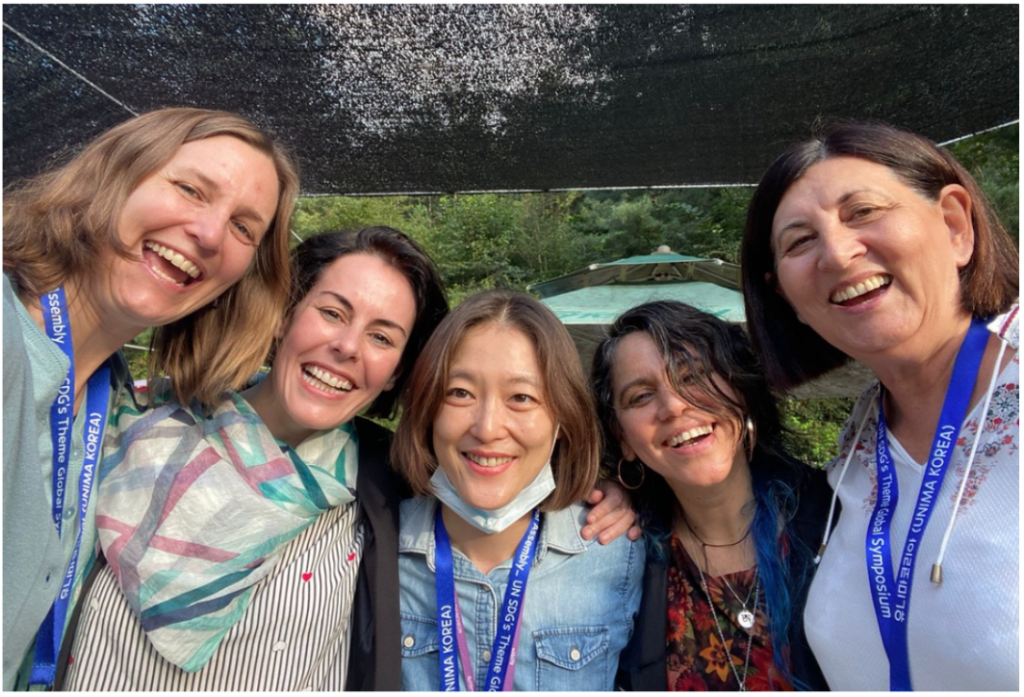
UNIMA International – UNIMA Korea
With the presence of many of UNIMA’s leading activists involved in various commissions in Chuncheon, it was the opportune moment for the Board members of UNIMA Korea to meet and discuss the working goals of the upcoming 2025 UNIMA Congress. The roundtable discussion began with personal introductions and the delegates’ feedback on their time in Chuncheon. While the journey was not always smooth, the diversity of topics and representation and the tenacity of UNIMA Korea’s secretary Jenny came to fore as some of the best highlights of the UNIMA-AVIAMA meetings.
Considering the extensive lockdowns Korea had undergone, UNIMA International extended their hand to Korea’s UNIMA centre so their organising team may be inspired by other symposiums and events to carve their own ‘international’ style. The two weeks’ engagement finally came to an end with a farewell dinner, but we can be certain more opportunities to meet and collaborate will follow.
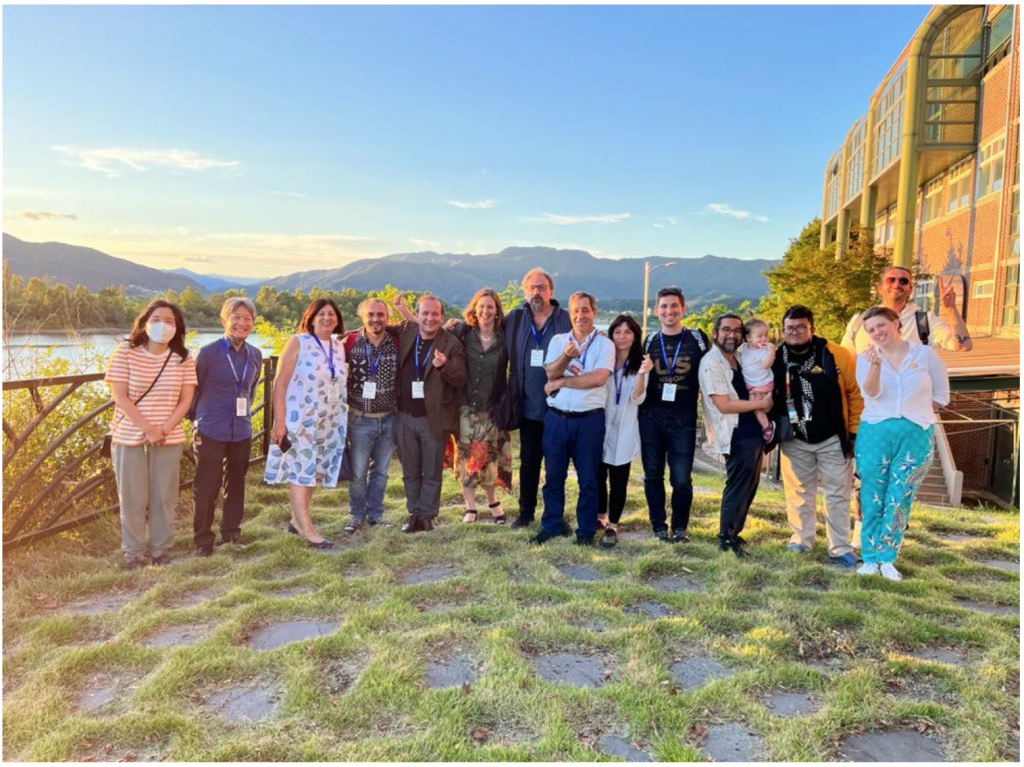
Report by Terence Tan, Communications officer for the General Secretariat, UNIMA
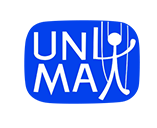
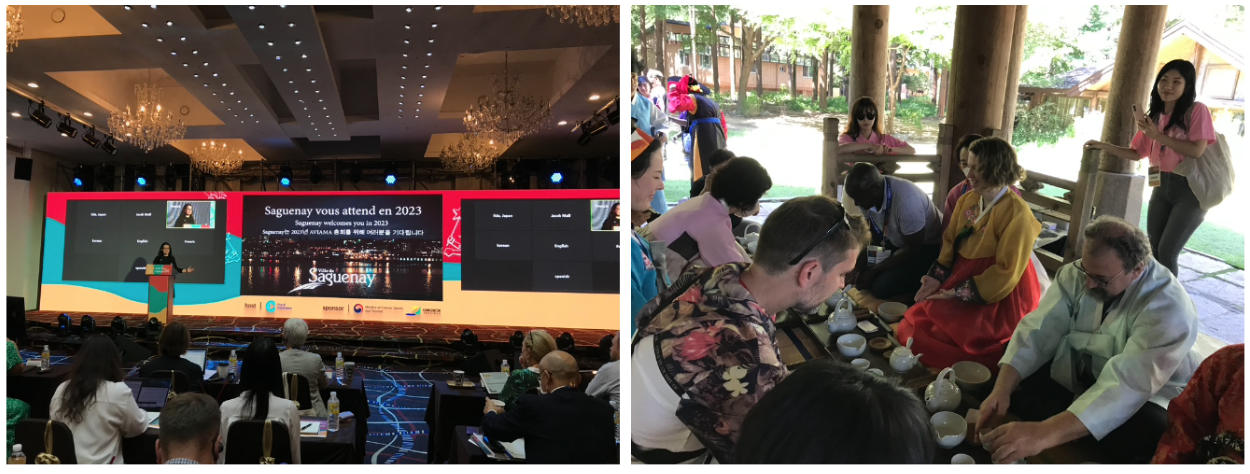
All the good wishes for the new Year
Especially to Jenny Heo(UNIMA KOREA)